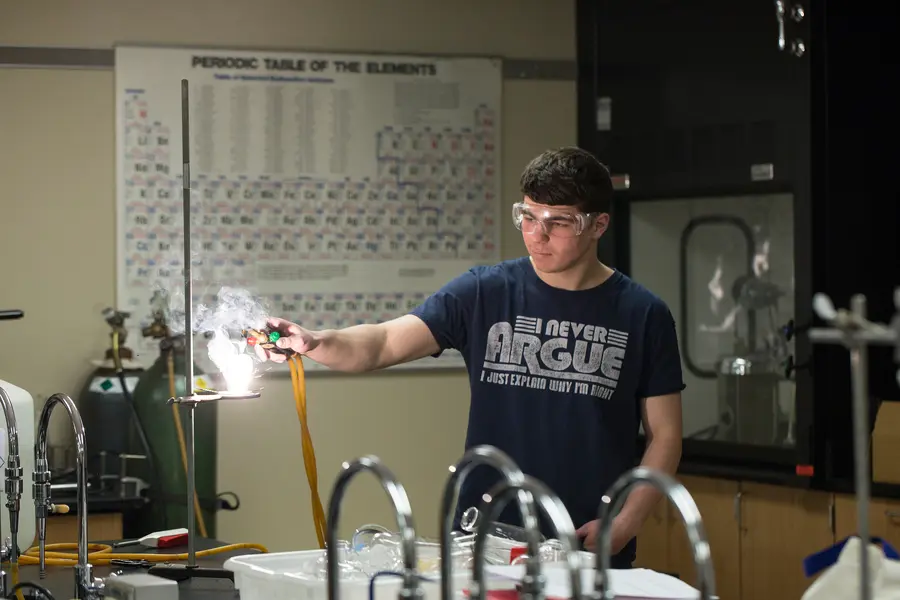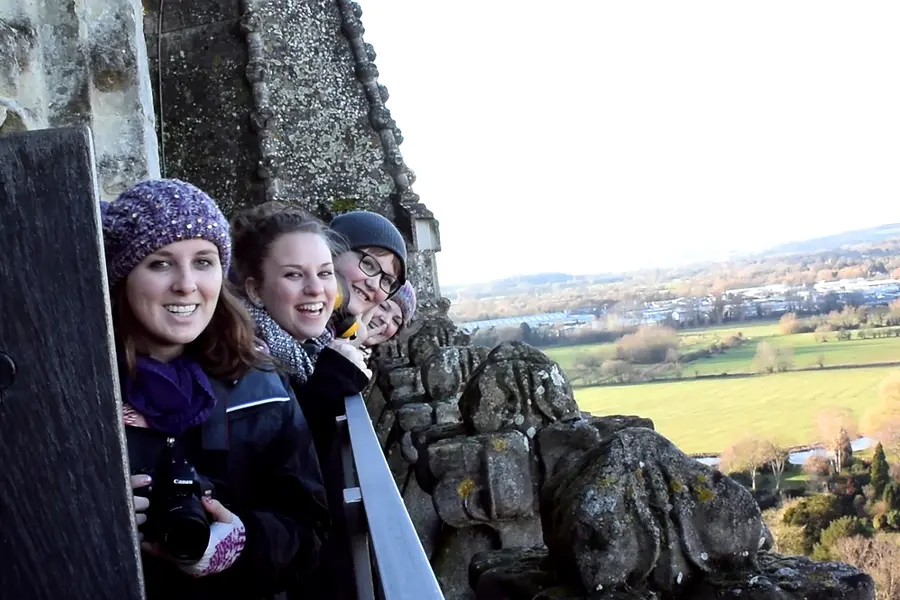Associate of Arts
The Associate of Arts degree provides a greater concentration on social sciences and humanities. It also provides a foundation if you intend to continue your education at a baccalaureate degree granting college or university by offering Liberal Arts courses equal to those found in the first two years of a four-year degree.
By completing this degree, you have the benefit of a degree-to-degree transfer, where universities grant junior status and automatically waive specific lower division requirements, such as general degree requirements, regardless of individual courses taken at Nicolet. If you do not intend to pursue a bachelor's degree, the Associate of Arts signify achievement of diverse skills and knowledge that are valued in today's work environments.
Program Outline
| Course # | Course Title | Credits |
|---|---|---|
| 2089010100 | Foundations of University Learning | 1.00 |
Description |
||
| 2080121900 | English Composition I | 3.00 |
DescriptionDevelops expository writing and critical thinking skills, including clarity, concision, concreteness, and completeness of expression, supported by reasoning, organization, and language conventions. Lecture. |
||
| 2080122300 | English Composition II | 3.00 |
DescriptionAdvances composition skills, emphasizing well-reasoned argumentative research papers. Lecture. Credits: 3. Prerequisite(s): 2080121900 English Composition I (D- or better) or 1080119500 Written Communication (B or better). |
||
| 2081020100 | Fundamentals of Speech | 3.00 |
DescriptionExamines theory and process of communication, the role of speech in self- development, the art of persuasion, topic selection, the use of research-based evidence, and audience analysis. Includes organizing speech content, speech delivery, and critique via presentation of informative and persuasive speeches and development of effective extemporaneous speaking style. Students gain self-confidence, proficiency, and poise. |
||
| N/A | Humanities | 12.00 |
DescriptionMust include courses in at least two disciplines: art, history, journalism/writing, literature, music, philosophy, theatre/film, world language. |
||
| N/A | Social Sciences | 12.00 |
DescriptionMust include courses in at least two disciplines: anthropology, economics, geography, history, political science, psychology, sociology. |
||
| N/A | Mathematics & Natural Science | 10.00 |
DescriptionMust include mathematics at the level of Intermediate Algebra, Statistics, Quantitative Reasoning, Elementary Math Education or higher AND 7 credits of Natural Science (one lab course required) chosen from biology, chemistry, geography (selected courses), geology, and physics. |
||
| N/A | Health/Wellness/Physical Education | 1.00 |
Description |
||
| N/A | Diversity/Ethnic Studies | 0.00 |
DescriptionCourses that meet this requirement may also count toward Humanities or Social Science. These credits are not in addition to the 60 credits required for the degree. |
||
| N/A | World Language | 4.00 |
DescriptionMay be met with one year high school, with a grade of “C” or better, or one semester in college. |
||
| N/A | Electives | 11.00 |
DescriptionSelect any college transfer courses beyond the minimum requirements. One credit of health and PE beyond the Health/Wellness/PE credit may be selected. May be 16 credits if students satisfy the world language requirement with one year of high school (C or better). |
||
At A Glance
How You'll Learn
On Campus
Online Classes
Term Start Dates
Spring 2025
January 13 - 16-Week Spring Term Start
Summer 2025
May 19 - 12-Week Summer Term Start
Fall 2025
August 25 - 16-Week Fall Term Start
Start dates represent the beginning of a new term. Certain programs or courses may not be available to start every term. Please view the course schedules for a list of upcoming classes or contact the Welcome Center at 715-365-4493.
Program Tuition*
$12,240
Books & Supplies*
$3,308
*Total cost for degree completion is estimated by current course requirements, books, and supplies. Tuition and fees are set by the Wisconsin Technical College System and subject to change.
Financial Aid Eligible
Potential Indirect Costs
You may experience these additional costs, not charged by Nicolet, estimated based on length of program.
What You'll Learn
- Apply forms of effective communication in various contexts
- Demonstrate quantitative reasoning
- Demonstrate critical and/or creative thinking
- Apply scientific methods
- Demonstrate cultural awareness
- Apply ethics to individual, social, environmental, and informational contexts
Possible Bachelor's Degree Majors
- Business (management, marketing, human resources, accounting, finance, economics)
- Communication (English, journalism, mass media)
- Education (early childhood, elementary, secondary, physical)
- Fine Arts (art, music, theatre)
- History
- International Studies
- Literature
- Public Relations
- Social Sciences (psychology, sociology, social work, geography, geology, political science)
Get Started
Your application can be submitted online, it takes just a few minutes to complete.

Related Programs

Become a Student

Study Abroad

Prepare for College




